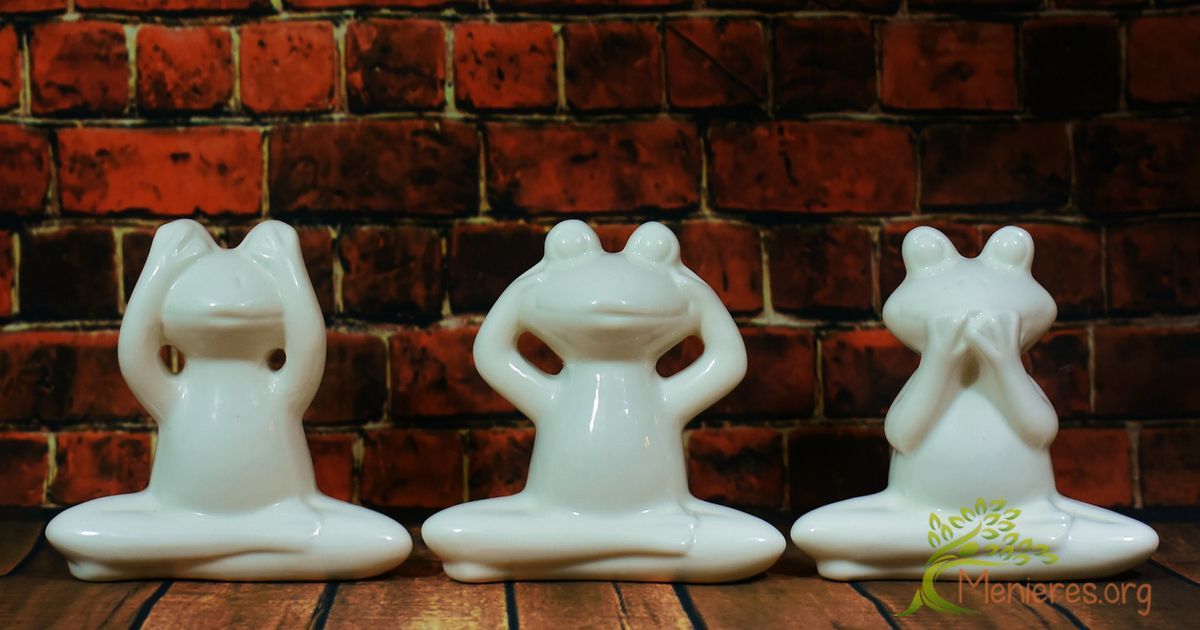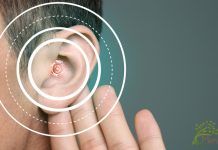
Getting a diagnosis of Meniere’s Disease is disconcerting. Chances are you’ve never even heard of the condition before. Suddenly, you need to find a space for a chronic condition in your life. By the time your physician gives you the news, you’ve already experienced bouts of dizziness and nausea. Some people also experience ringing in one ear and ear stuffiness. The symptoms come and go and without warning. Sometimes all the common symptoms in Meniere’s manifest at the same time. Other episodes may involve one or two signs of the disorder. Worse still, there’s no warning of the next episode until its onset.
Because of the unpredictable nature of Meniere’s, it’s important to make a self-care plan. At first, you might feel powerless. But, there are several things you can do to take control of your life back. Planning for issues in advance lets you manage Meniere’s symptoms with greater effectiveness. Preparing yourself for dealing with the condition will also increase your confidence.
Body Language & Meniere’s Triggers

You know the old saying, “Know your body?” It’s an important part of creating a healthy lifestyle for Meniere’s. Pay close attention to what your body experiences and how it reacts. Do you find loud noise or bright-flashy lights bring on an episode or make matters worse? What about stress, not getting solid sleep and even weather changes? These things can become a trigger for Meniere’s so the more you know about what triggers your experiences, the better.
A Meniere’s Diary
Some people suffering from Meniere’s find it’s helpful to track their attacks. After the air is clear, they may journal, or they make a list of conditions and the resulting intensity of the attack. When tracking Meniere’s symptoms, make sure into include the following information:
- Date and time of symptom onset.
- Duration of the symptoms you experience.
- What you ate the day you experience symptoms (Note: Some people include what they ate the evening before as well).
- What the weather is when your symptoms start.
- Environmental specifics: Note if the room or location is hot, cold, bright, dark, etc.
- Emotional state prior: Note if you were happy, sad, aggravated, etc.
- How you felt just before vertigo began.
- The after-effects of your symptoms and how you feel on an emotional level.
Over time, certain patterns emerge. The constellation of symptoms you experience and when you experience them will help you discern when a Meniere’s attack may happen. You may also discover things you should avoid, not just for a healthy lifestyle, but to increase the time between Meniere’s episodes.
Meniere’s Lifestyle and a Low-Salt Diet

By far, the biggest piece of advice given to Meniere’s sufferers is avoiding symptom triggers in your diet. The less salt you eat, the less likely it is fluid pressure will build up in your ear. So how much salt can you eat? About 3/4 teaspoons full is the limit. It’s best to remove the salt shaker now. Also, remember a great number of foods you eat have salt in them already.
When you’re shopping, labels are your best friend. Look for salt (sodium) and MSG on the list of ingredients.* Try to stick to products that have less than 100 milligrams of salt per single serving.
*Hint: When you see salt among the first ingredients on the label, the food is higher in salt since ingredients go in order of amount used (highest to lowest).
High Sodium Foods
There are a lot of edibles in the supermarket you may not think of as salty. Almost all canned food contains salt as a flavoring or preservative. Here, watch for cans with the label of “no sodium” or “low sodium.” What other foods serve as a hidden source of salt intake? See the list below of what to avoid:
- Packaged Food: Including breakfast cereals, macaroni & cheese, and flavored rice.
- Pickled Items: Including olives and sauerkraut.
- Condiments: Worcestershire, soy, salad dressing (including mixes), ketchup, and sweet relish.
- Cheese: Almost every type.
- Spices: Garlic or onion salt (get powder instead). Bouillon cubes; Malt extract. Also spice blends like barbecue seasoning have a lot of salt.
- Beverages: Vegetable juice; sports drinks.
- Processed Meat: Including bacon, sausage, ham, and salami.
- Frozen Dinners: All types.
- Packaged Mixes: Cakes, brownies, and breads.
- Ice Cream: Brands with add-ins like cookie bits.
- Snacks: The snack isle in the grocery store has a majority of what’s on offer brimming with salt.
Now, don’t despair. You don’t have to give up flavor to have a healthy lifestyle for Meniere’s Disease management. You must be a little creative. There are many herb blends you can make with no salt. Mix lemon zest, garlic, basil, and pepper. Powder the mix and fill your old salt shaker with it. Or you can get premade, salt-free blends. Rather than Ranch or French salad dressing, stick with olive oil and vinegar.
For a sweet tooth, look toward in-season fruit, sorbet, and bake with no-salt butter (no corn oil). Do not consume foods with aspartame (NutraSweet, Equal). With cooking styles, think about grilling, baking, broiling, or steaming.
People with Meniere’s have been experimenting with various things to make their lives easier. Their reports show while over-the-counter medicines can calm nausea, some contain a lot of… you guessed it… salt. Check with your pharmacist if you’re not sure. If allergies are one of your triggers, also ask about good low-salt antihistamine. Also, decrease your intake of alcohol and caffeine, and if you’re a smoker, work on quitting.
Safety Protocols and Meniere’s

Depending on the severity of your Meniere’s symptoms some of your typical daily routines may have already changed. Perhaps you no longer drive yourself places or work with hand tools. Dizziness is dangerous, and a healthy lifestyle means taking safety-first with a serious approach.
Now is the time to go through your living space. Implement the following measures:
- Put grab bars in the shower, near the toilet, and on stairways, if there are no standard handholds available.
- Replace throw rugs with mats having a non-skid backing.
- Add night lights with automatic activation for safe walking when it’s dark.
- Get a step stool with handrails.
- Move shoes, dog toys, and other small items out of common walkways to prevent falls.
Consider implementing the following safety measures for yourself:
- Give up high heels. Use sensible shoes with flat bottoms and good traction.
- Avoid reaching upward toward high items (and avoid heights if possible).
- Avoid driving; find a car-buddy.
- Educate your family, friends, and coworkers on Meniere’s symptoms and what to do when you are having an episode.
Mental Health and Meniere’s Management

Anxiety and stress go hand-in-hand with Meniere’s Disease symptoms. You may feel you have no options or isolated by the limitations Meniere’s puts on your lifestyle. The daily fear you may have a bad vertigo episode is enough to make anyone anxious.
Worse still, fear can increase dizziness. Our bodies and minds have a fight or flight instinct, and your worry pushes the flight response button hard. Some Meniere’s sufferers have out-right anxiety attacks causing nausea, sweating, shaking, and hyperventilation. If you have no way of easing the sensation, you live in a constant heightened state where edginess is part of your daily reality. The situation links with the onset of dizziness and even fainting. It’s easy to see how this affects your Meniere’s condition adversely.
Living with Meniere’s: Other Modalities to Help Improve Quality of Life

There are some nonintrusive approaches which can help you deal with Meniere’s symptoms. For example, if it impacts your hearing, what about a hearing aid? If tinnitus keeps you awake at night, look into white noise generating devices: Even a standing fan may help. Quiet music may be enough to dampen the inner ringing too.
Holistic Approaches for Meniere’s Symptom Control
Some of Meniere’s patients report positive results from alternative medicine. For stress reduction, for example, they use breathing techniques and meditation. Some turn to hypnosis or biofeedback. There are also things like:
- Massage
- Osteopathy
- Acupressure
- Acupuncture
- Chiropractic
- Essential oils & herbs
- Natural supplements
- Yoga
- Naturopathy
Summing It All Up: Talk to Professionals about Meniere’s Control

Find a professional to confide in when you need to speak with someone. Talk about how Meniere’s makes you feel, how it impacts your family, hobbies, or job. Be honest. This isn’t a time for putting on a brave face. Pretending everything is fine will not help. Put everything on the table. Let the tears flow if they may. Take a deep breath and relax. Live your healthy lifestyle day-by-day. You don’t have to figure it all out at once!
Besides a counselor, you can reach out to support groups for people who have Meniere’s. When you hear other people’s stories, somehow the big picture comes into better focus. You know you are not alone, and now you’re getting great feedback and ideas from people who have been through what you’re experiencing.
Don’t overlook your own ability to become a self-advocate. Learning about your condition, the current research, and treatments available empowers you. If you are interested in exploring any of these avenues for managing Meniere’s with a healthy lifestyle, please consult your physician. It’s unlikely natural approaches to Meniere’s will conflict with your treatment plan, but it’s always important to let your doctor know your plans so you can get professional feedback.



